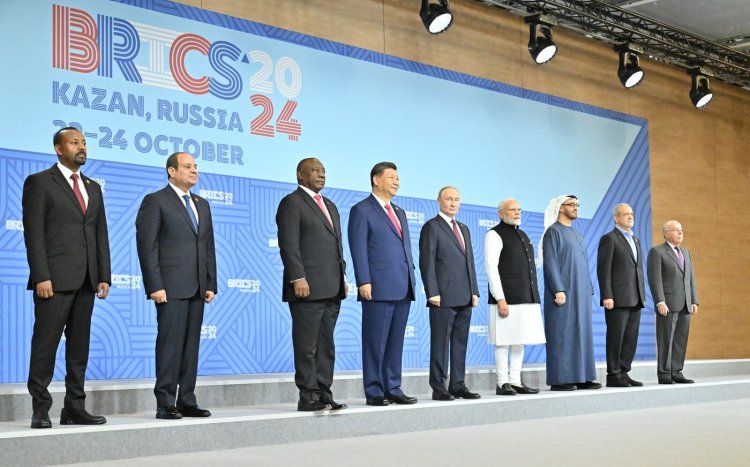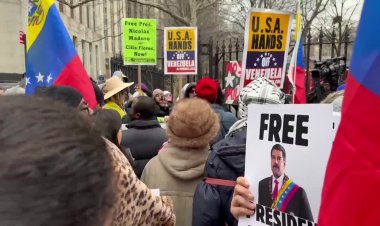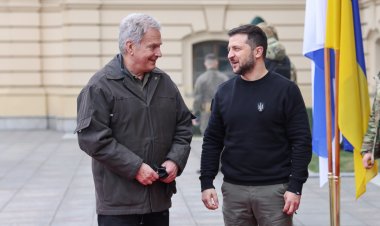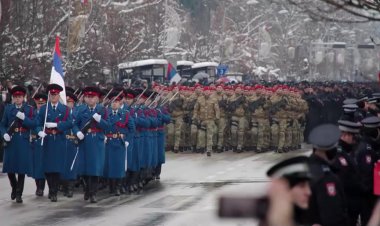BRICS+ summit in Russia expands bloc and influence

The 16th annual BRICS+ summit concluded in Kazan, Russia, with an expanded format featuring 36 participating countries, including 22 heads of state. The summit's final day focused on outreach to Global South nations, highlighting Russia's efforts to demonstrate its continued international influence despite Western isolation attempts.
The summit marked significant expansion of the bloc, with Egypt, Ethiopia, Iran, and the United Arab Emirates joining the original members (Brazil, Russia, India, China, and South Africa). Additional countries, including Turkey, Azerbaijan, and Malaysia, have submitted membership applications.
Russian President Vladimir Putin, who hosted the event, held bilateral meetings with various leaders, including Palestinian President Mahmoud Abbas and UN Secretary-General Antonio Guterres. The summit concluded with the adoption of the "Kazan Summit Declaration" and Putin's news conference addressing various international issues.
During media interactions, Putin dismissed allegations about Russian interference in Western politics and addressed reports about North Korean troops in Russia. He acknowledged a newly ratified Russia-North Korea security pact while discussing relations with the United States.
The BRICS+ group, now representing 45% of the world's population and 35% of global economic output, revealed internal dynamics and divergent interests among its members. While Russia framed the bloc as a counterweight to Western influence, founding members India and Brazil viewed it primarily as a trade forum. Notable tensions included India-China rivalry and varying stances on the Ukraine conflict, with Indian Prime Minister Modi calling for a quick end to the war.
Despite the summit's broad participation and symbolic importance, concrete outcomes were limited, with the final communique focusing more on issues like the Middle East crisis and wildlife protection than on contentious geopolitical matters.















